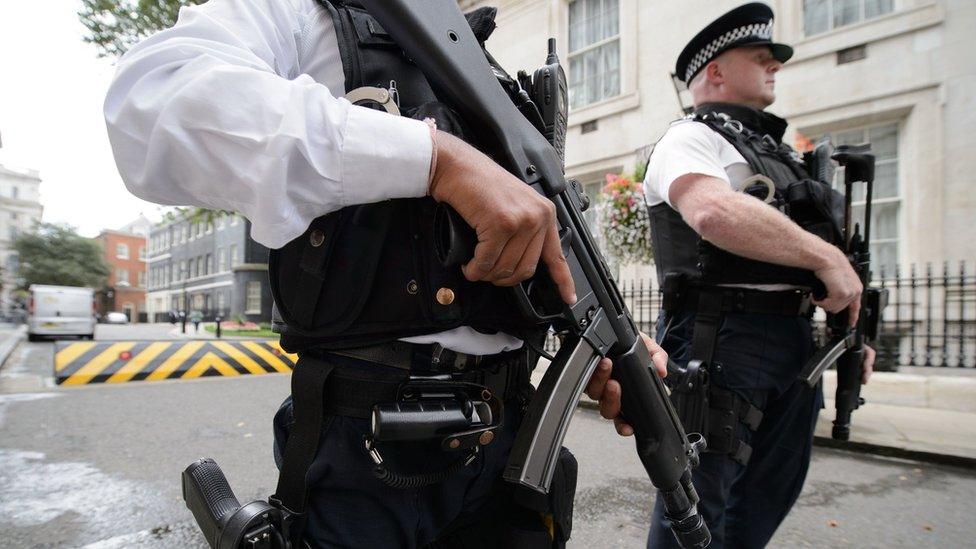Over 3,000 terror tip-offs to police in two months
- Published

Police received over 3,000 tip-offs by the public about possible terrorist activity in the last two months.
The National Police Chiefs' Council said a significant number of calls had been made after the Westminster attack.
It said that despite most of the information being false alarms, some of the calls had resulted in further action that might have been missed.
A spokeswoman for the council said the increased public response "had been really heartening".
'Cannot stand still'
Speaking at a conference in London, the NPCC's lead for protective security said authorities had also received 300 referrals about extremist material online.
Deputy Assistant Commissioner Lucy D'Orsi said: "The increased response from the general public and from professionals whose job it is to keep people safe within crowded places, has been really heartening.
"But, as we have seen very recently here in London, we can not afford to stand still.
"We need to exploit every possible way of keeping people safe and do all we can to keep everyone vigilant."
The UK's most senior counter-terrorism police officer, Mark Rowley, has previously stressed the importance of the role of the public in providing key information on potential terror plots. He said current contributions had been "extraordinary".
Against vehicle borne attacks
Ms D'Orsi added police were working very closely with security managers in busy shopping centres, transport hubs and entertainment venues.
"Whether it is in business communities or local communities, we need to encourage everyone to keep contributing because, sadly, terrorism is a growing and increasingly complex threat."
She told the conference they were aiming to increase their use of the national barrier asset - a temporary structure to prevent vehicle borne attacks - at summer events with large crowds.
The official threat level for international terrorism in the UK has stood at severe - meaning an attack is "highly likely" - for more than two years.
- Published6 March 2017
- Published8 December 2016